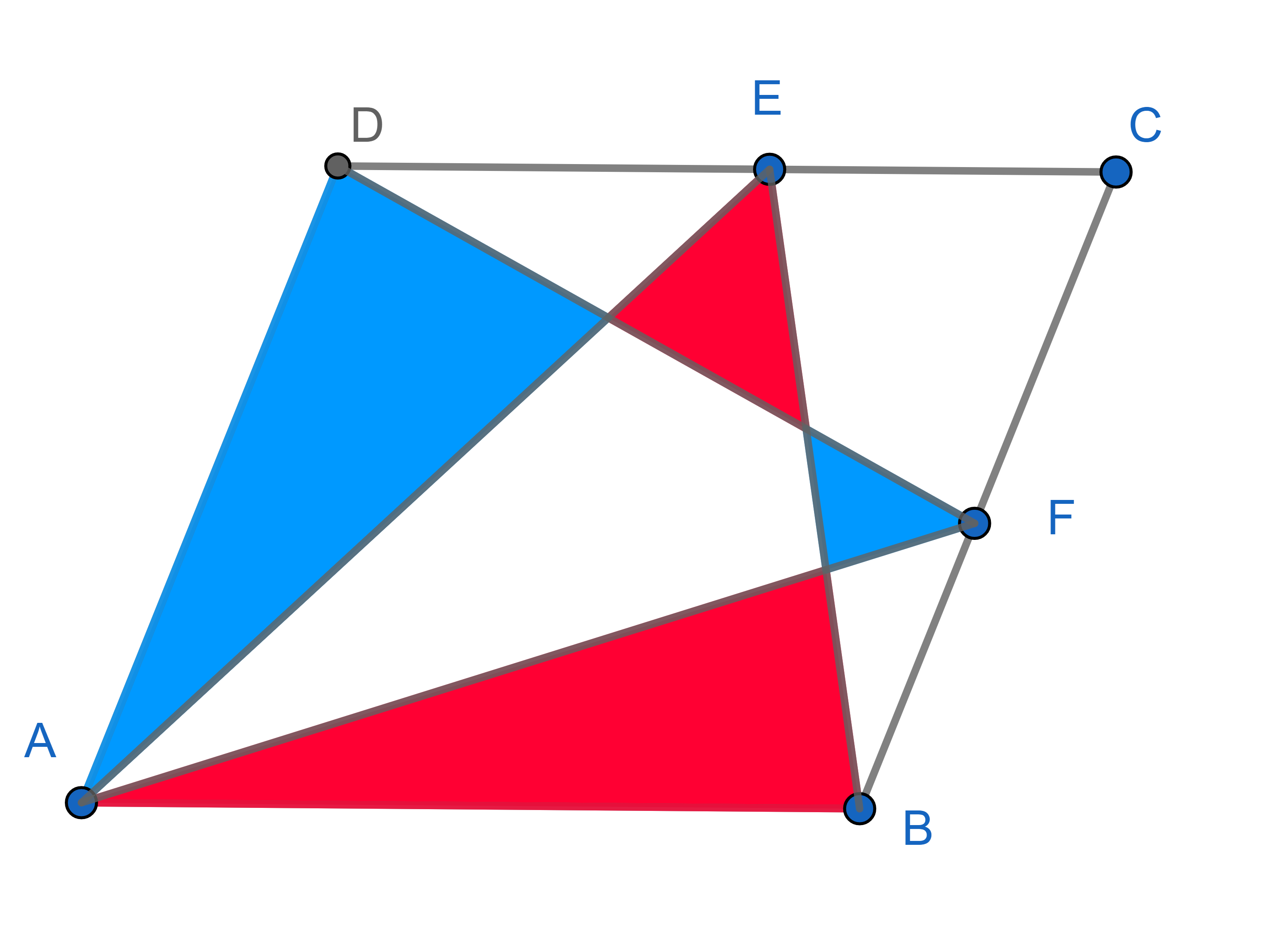Problems
Which triangle has the largest area? The dots form a regular grid.

What is the ratio between the red and blue area? All shapes are semicircles and the red ones have equal radii.

In a parallelogram \(ABCD\), point \(E\) belongs to the side \(CD\) and point \(F\) belongs to the side \(BC\). Show that the total red area is the same as the total blue area:

The figure below is a regular pentagram. What is larger, the black area or the blue area?

Among the first \(20\) Fibonacci numbers: \(F_0 = 0,F_1 = 1,F_2 = 1, F_3 = 2, F_4 = 3,..., F_{20} = 6765\) find all numbers whose digit-sum is equal to their index. For example, \(F_1=1\) fits the description, but \(F_{20} = 6765\) does not, since \(6+7+6+5 \neq 20\).
Among the first \(20\) Fibonacci numbers: \(F_0 = 0,F_1 = 1,F_2 = 1, F_3 = 2, F_4 = 3,..., F_{20} = 6765\) check whether the numbers with prime index are prime. The index is another name for a number’s place in the sequence.
Consider Pascal’s triangle: it starts with \(1\), then each entry in the triangle is the sum of the two numbers above it. Prove that the diagonals of Pascal’s triangle add up to Fibonacci numbers.

Prove for any integers \(m,n\ge0\)
that \(F_{m+n} = F_{m-1}F_n +
F_mF_{n+1}\).
Corollary: if \(k\mid
n\), then \(F_k\mid F_n\). This
can be proven by induction if we write \(n=sk\) for a natural \(s\), then \[F_{k+(s-1)k} = F_{k-1}F_{(s-1)k} +
F_kF_{(s-1)k+1}.\]
Denote by \(\gcd(m,n)\) the greatest common divisor of numbers \(m,n\), namely the largest possible \(d\) which divides both \(n\) and \(m\). Prove for any \(m,n\) that \[\gcd(F_n,F_m) = F_{\gcd(m,n)}.\]
Suppose that \(p\) is a prime number. How many numbers are there less than \(p^2\) that are relatively prime to \(p^2\)?